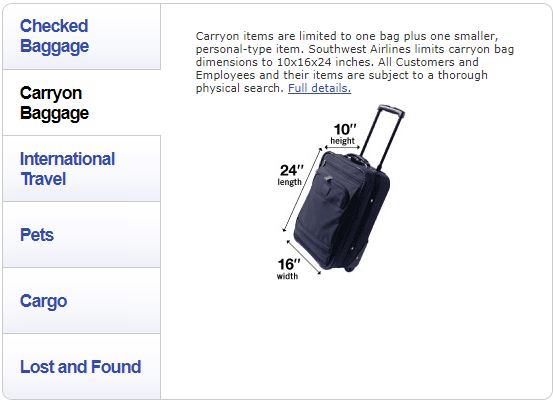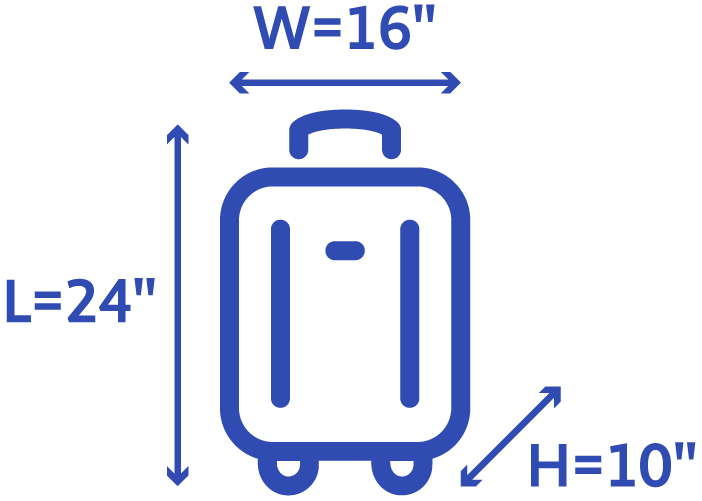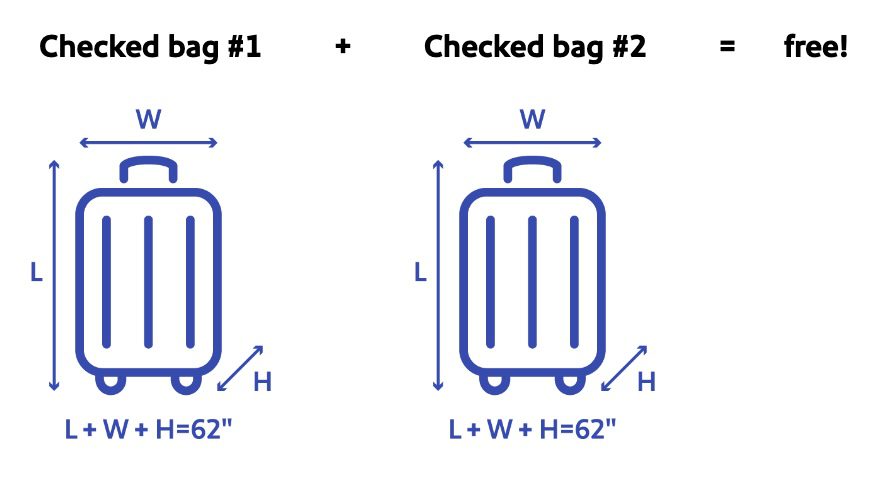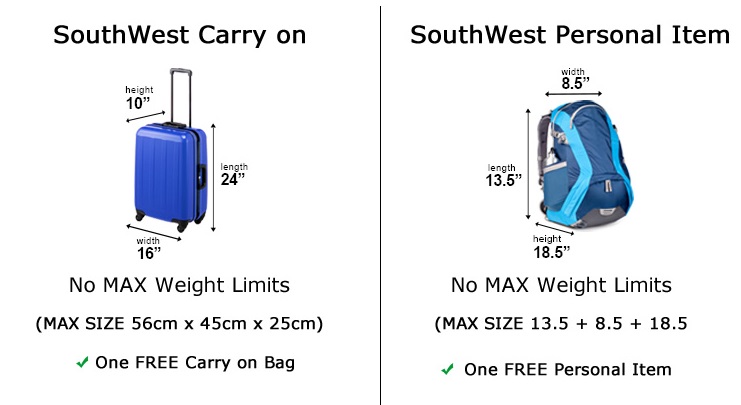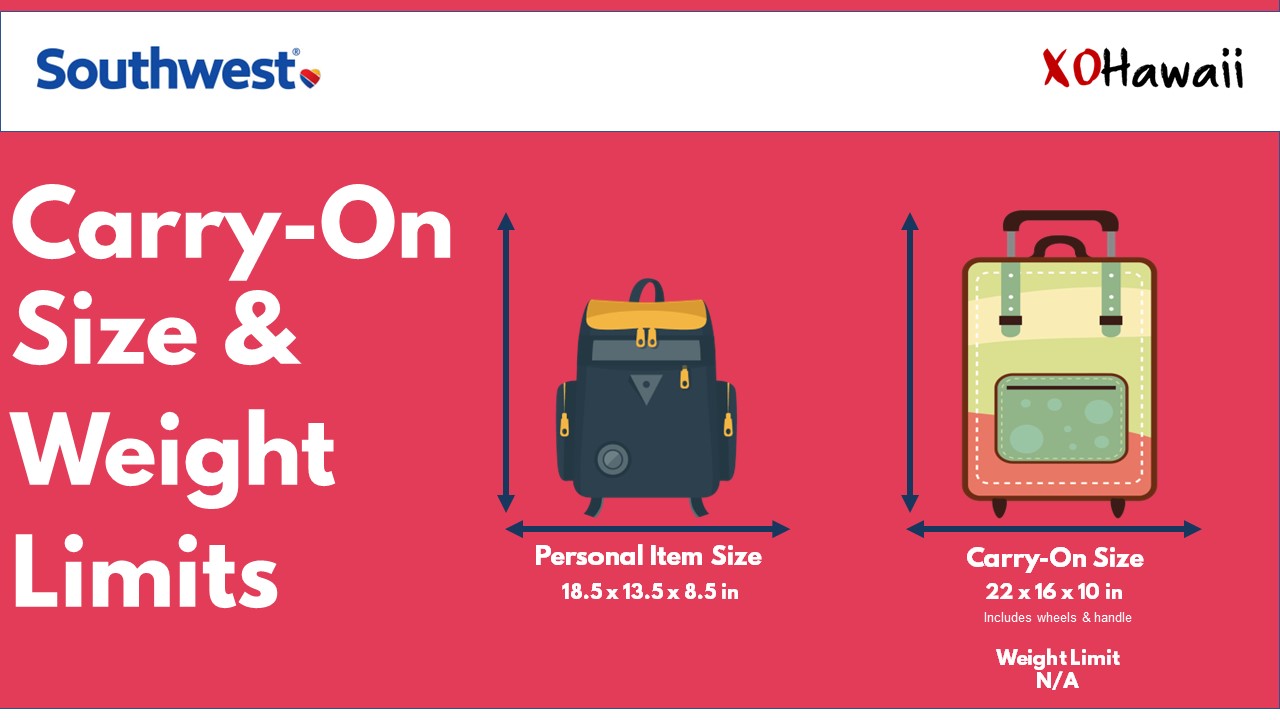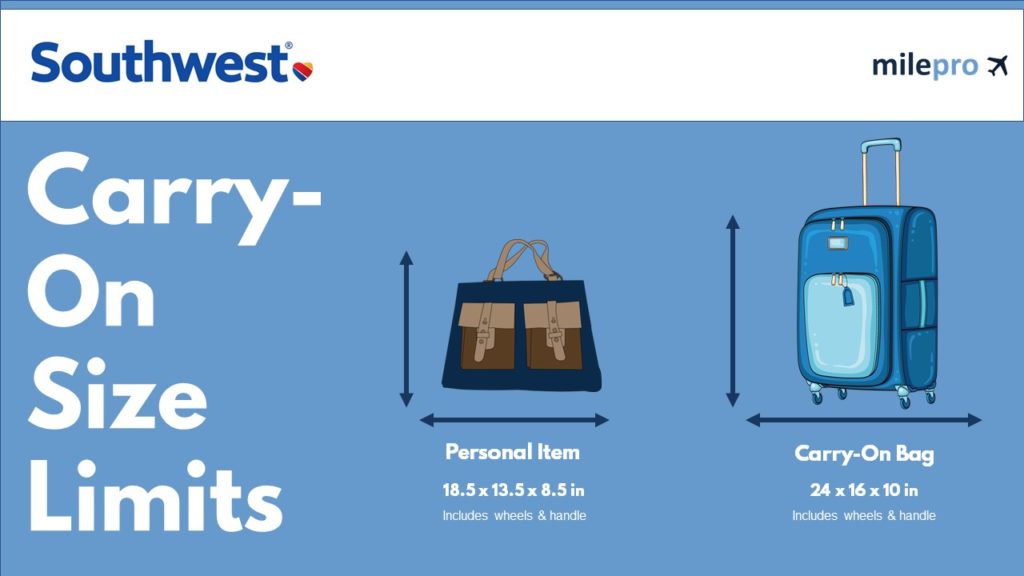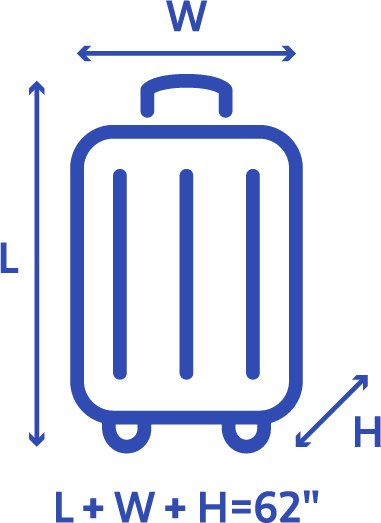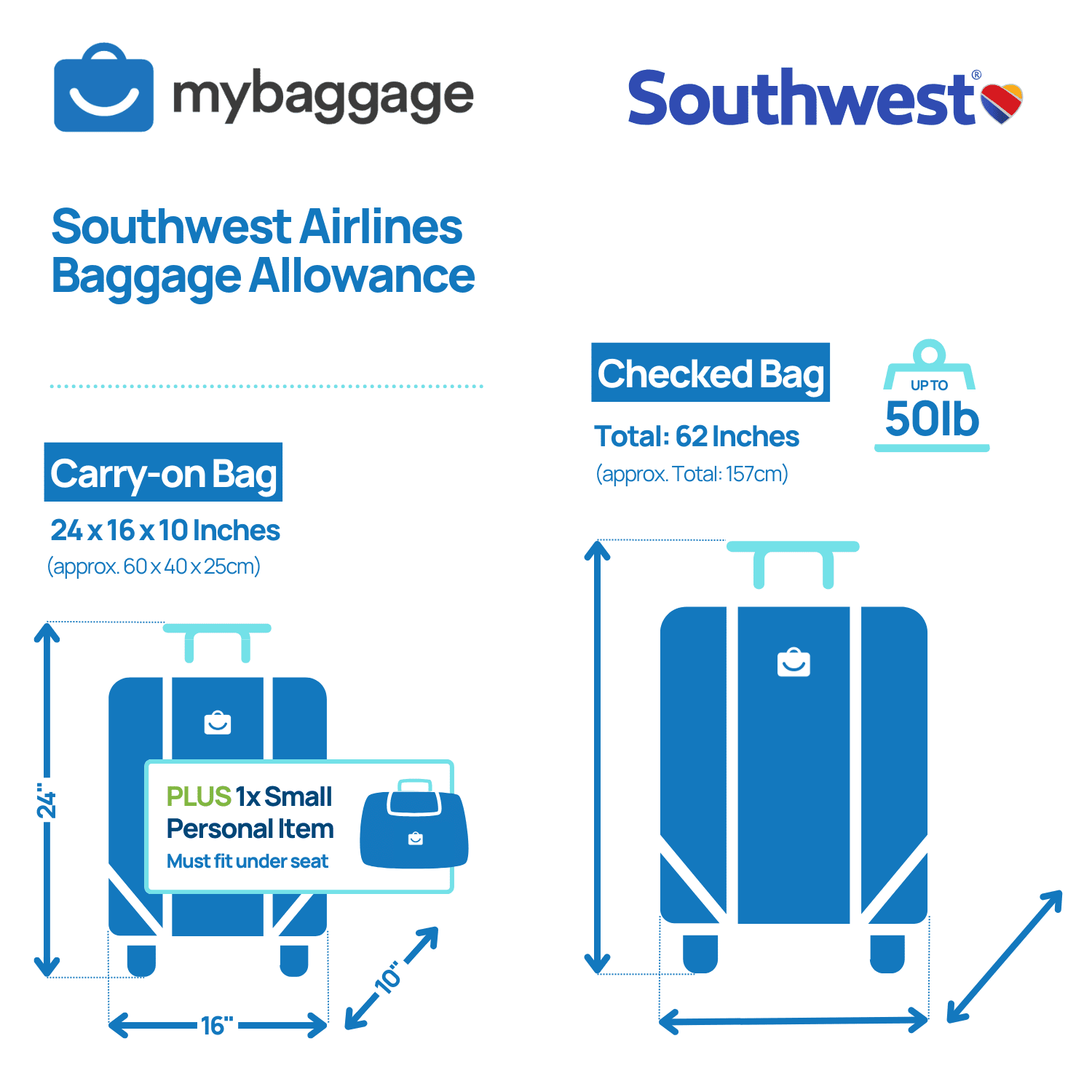Southwest Checked Bag Size: What Fits And What Costs Extra

Imagine standing at the Southwest Airlines check-in counter, a mix of vacation excitement and pre-flight jitters swirling around you. You're picturing sun-drenched beaches or cozy mountain cabins, but a nagging question lingers: Will your luggage make the cut? Understanding Southwest's baggage policies is key to smooth sailing, saving you from unexpected fees and ensuring your trip starts off right.
Southwest Airlines distinguishes itself with its customer-friendly baggage policy, allowing each passenger two free checked bags. However, there are specific size and weight restrictions. This article will guide you through everything you need to know about Southwest's checked baggage policy, from size and weight limits to potential extra costs, ensuring your luggage arrives safely and without any surprises.
Southwest's Generous Baggage Allowance
Southwest Airlines has built a reputation for its unique and customer-centric approach, and its baggage policy is no exception. Unlike many other airlines that charge for checked bags, Southwest allows each passenger to check two bags for free. This perk can translate to significant savings, particularly for families or travelers with bulkier items.
This policy stems from Southwest's commitment to making travel more accessible and affordable. By including checked bags in the base fare, the airline aims to simplify the booking process and provide greater transparency for passengers.
The Nitty-Gritty: Size and Weight Limits
While the two free checked bags are a major plus, it's crucial to understand the size and weight restrictions. According to Southwest's official website, each checked bag must not exceed 62 inches (length + width + height) in overall dimensions. The weight limit for each bag is 50 pounds.
If your bag exceeds either the size or weight limit, you'll be subject to additional fees. Overweight baggage (51 to 100 pounds) and oversized baggage (63 to 80 inches) are charged at a rate of $75 per bag, each way. It’s best to weigh and measure your bags at home to avoid these extra costs.
What Fits and What Doesn't
A standard suitcase, generally measuring around 27-30 inches in height, typically falls within Southwest's size restrictions when combined with its width and depth. However, it's always best to double-check the specific dimensions of your luggage to be sure.
Items like skis, snowboards, and golf bags are also accepted as checked baggage, but they are still subject to the same size and weight restrictions. If these items exceed the limits, the $75 fee applies.
Navigating Special Items
For musical instruments, Southwest has specific guidelines. Smaller instruments, like guitars or violins, can often be brought onboard as carry-on items if they fit in the overhead bin or under the seat. Larger instruments, such as cellos or basses, may need to be checked and will be subject to the standard size and weight limitations.
Medical devices and mobility aids are typically exempt from baggage fees and size restrictions, but it's always a good idea to contact Southwest's customer service in advance to confirm specific requirements. Early communication can help avoid any confusion or delays at the airport.
Avoiding Extra Costs: Pro Tips
The easiest way to avoid extra baggage fees is to weigh and measure your bags before heading to the airport. A simple luggage scale can be a worthwhile investment.
Consider shipping bulky items ahead of time. Services like UPS or FedEx can sometimes be more cost-effective than paying overweight or oversized baggage fees, especially for longer trips.
Pack strategically. Think about rolling clothes instead of folding them to save space. Utilize packing cubes to compress items and keep your suitcase organized. Wear your heaviest shoes and jacket on the plane to lighten your luggage.
The Competitive Landscape
Southwest's baggage policy stands out in an industry where many airlines charge significant fees for checked bags. Competitors like United, American, and Delta typically charge for checked bags on domestic flights, unless you have elite status or are traveling on certain fare classes.
This makes Southwest an attractive option for budget-conscious travelers who prioritize included baggage. The savings on baggage fees can often offset any potential differences in base fares.
Looking Ahead: Potential Changes
While Southwest's baggage policy has remained relatively consistent over the years, it's always wise to stay informed about any potential changes. The airline industry is dynamic, and policies can evolve in response to market conditions and customer feedback.
Checking Southwest's official website or subscribing to their email updates are reliable ways to stay up-to-date on any modifications to their baggage allowance or fee structure. Proactive awareness helps ensure a seamless travel experience.
Understanding Southwest's checked bag policies, from the generous allowance to the crucial size and weight limits, empowers you to travel with confidence. By packing smart and staying informed, you can sidestep unexpected fees and focus on what truly matters: enjoying your journey. So, pack your bags, double-check those dimensions, and get ready for a memorable adventure with Southwest Airlines.
